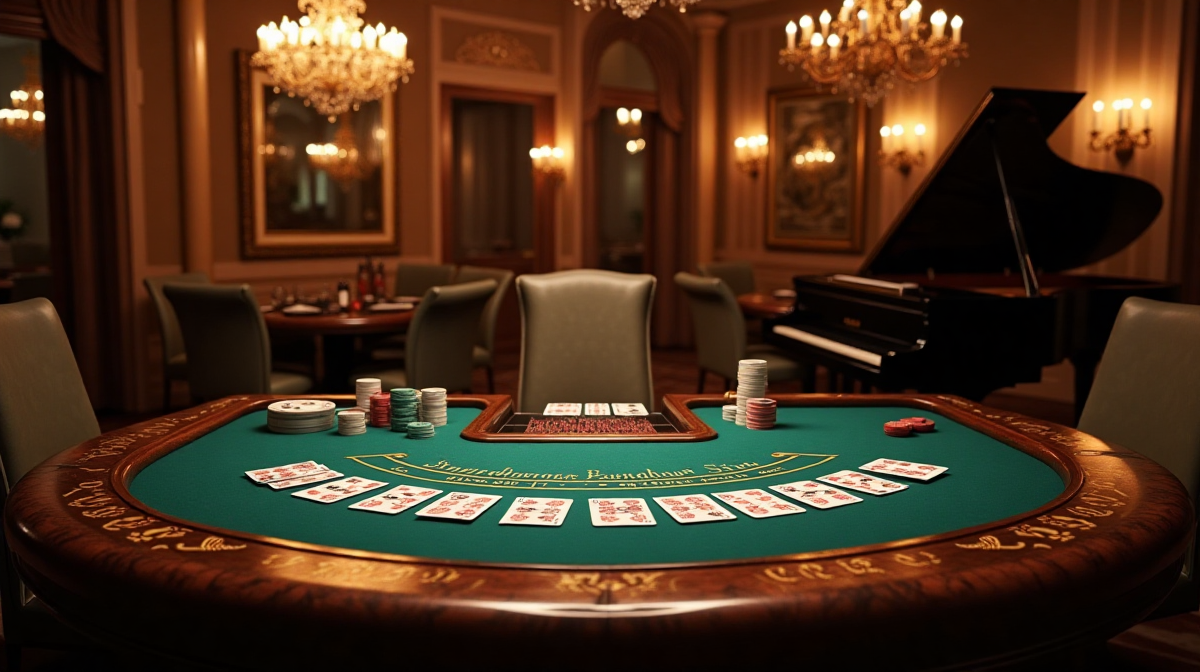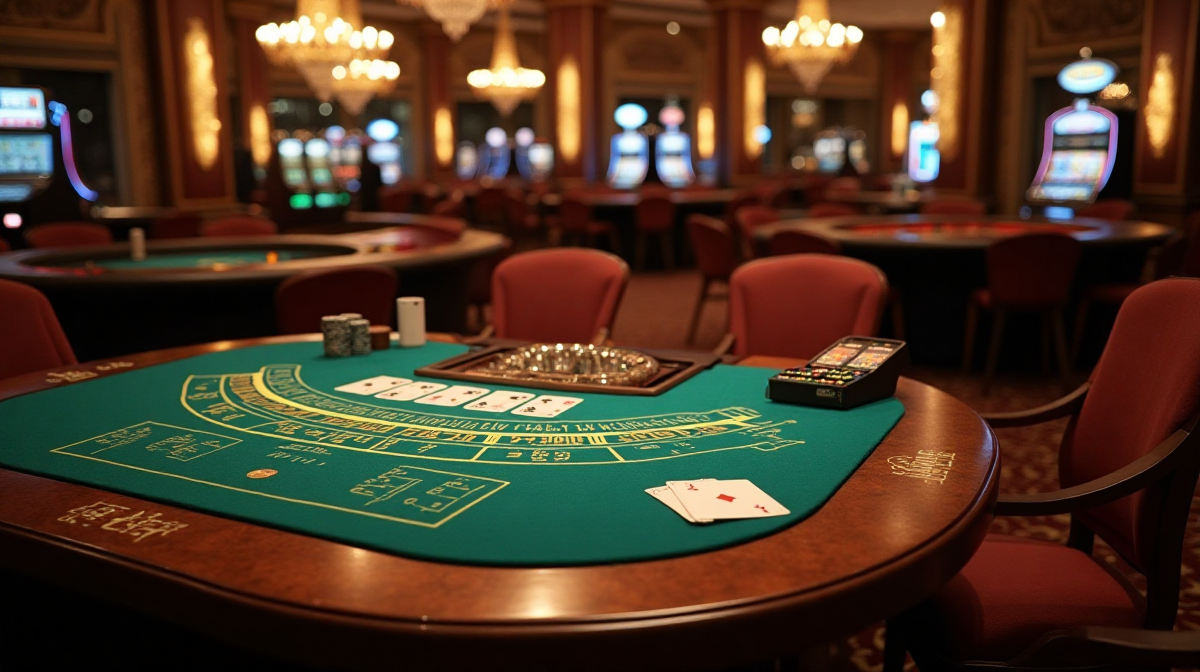5 Blackjack Rules You NEED to Know!
Introduction: Why Understanding Blackjack Rules is Crucial
Blackjack, a casino staple, draws players in with its blend of chance and skill. While often perceived as a game of luck, a solid understanding of the rules of blackjack dramatically increases your chances of winning. Many new players are drawn to platforms like GoldsBet for their engaging blackjack experience, but even the best platform can’t compensate for a lack of knowledge. Before diving into a game, or even considering a goldsbet rummy download for variety, mastering the fundamentals is essential.
Beyond the Glamour: The Strategy Behind Blackjack
Blackjack isn’t simply about getting a high hand. It’s about making calculated decisions based on probabilities and understanding the dealer’s constraints. Successful players don't rely on gut feelings; they employ strategy.
Common Misconceptions About Blackjack Luck
The idea that blackjack is purely about luck is a common misconception. While the initial deal is random, subsequent decisions – whether to hit, stand, double down, or split – are entirely within your control. Learning to make the optimal choice in each situation is the key to long-term success. GoldsBet offers a great platform to practice these strategies risk-free.
Setting Expectations: From Beginner to Confident Player
Don't expect to become an expert overnight. Start by grasping the core principles and gradually refine your strategy as you gain experience. A platform like goldsbet. com can provide a gentle learning curve, but dedication to understanding the rules is paramount.
Rule #1: Understanding Card Values & The Goal
The foundation of blackjack lies in understanding the value of each card and the ultimate objective of the game. It’s surprisingly simple, yet crucial for informed decision-making.
Numbered Cards: Face Value Explained
Cards numbered 2 through 10 retain their face value. A 7 is worth 7, a 9 is worth 9, and so on. This is the most straightforward part of the card valuation system.
Face Cards : Their Value in Blackjack
Jack, Queen, and King cards all have a value of 10. This consistency simplifies hand calculations and is a key element in strategic play.
The Ace: 1 or 11? – Mastering its Flexibility
The Ace is unique. It can be valued as either 1 or 11, depending on which value benefits your hand the most. This flexibility is a powerful tool in blackjack, allowing you to avoid busting while potentially achieving a strong hand.
The Objective: Getting as Close to 21 as Possible
The goal of what is blackjack is to get a hand total as close to 21 as possible without exceeding it. Going over 21 results in an immediate loss, known as a “bust.”
Rule #2: The Core Actions – Hit, Stand, Double Down & Split
Once you understand card values, you need to learn the actions you can take during your turn. These actions determine how your hand evolves and ultimately influence your chances of winning.
Hit: Taking Another Card – When to Do It
“Hit” means requesting another card from the dealer. You should hit when your hand total is low, and you believe another card will bring you closer to 21 without busting.
Stand: Holding Your Hand – Knowing When Enough is Enough
“Stand” means ending your turn and keeping your current hand. You should stand when you are satisfied with your hand total, and you believe taking another card will likely result in a bust. Many players find GoldsBet’s interface helps them visualize when to stand.
Double Down: Increasing Your Bet – Strategic Opportunities
“Double Down” allows you to double your initial bet in exchange for receiving only one additional card. This is a strategic option best used when you have a strong starting hand, like 11.
Split: Dividing Your Pair – Maximizing Your Chances
“Split” allows you to divide a pair of identical cards into two separate hands, each with a bet equal to your original bet. This can be advantageous in certain situations, such as when you have a pair of Aces or eights.

Rule #3: Dealer's Rules – The House's Constraints
The dealer operates under a strict set of rules, different from those available to the player. Understanding these rules is vital for formulating your strategy.
The Dealer's Mandatory Hit on 16 & Stand on 17 – Clarified
The dealer must hit if their hand total is 16 or less, and must stand if their hand total is 17 or more. This is a fundamental rule that significantly impacts gameplay.
Why the Dealer's Rules are Different from Yours
The dealer’s rules are predetermined and consistent, providing a level playing field. These rules prevent the dealer from making subjective decisions that could favor the house.
How the Dealer’s Rules Affect Your Strategy
Knowing the dealer must hit on 16 influences your decisions. For example, if you have a 12 and the dealer shows a 6, you might stand, knowing the dealer has a high probability of busting.
Rule #4: Insurance & Surrender – Optional, But Significant
Blackjack offers two optional side actions: insurance and surrender. These can be useful in specific scenarios, but they come with risks.
Insurance: Protecting Yourself Against Blackjack - Is it Worth It?
“Insurance” is offered when the dealer’s upcard is an Ace. It’s a side bet that the dealer has blackjack. While it protects you from losing your entire bet, the odds are generally not in your favor.
Surrender: Giving Up Half Your Bet – When to Consider It
“Surrender” allows you to forfeit your hand and receive half of your bet back. This is a viable option when you have a particularly weak hand and believe you are likely to lose.
When to Avoid Insurance & Surrender – Recognizing Bad Situations
Generally, avoid taking insurance. The house edge on insurance is high. Surrender should only be considered in very specific, unfavorable situations.

Rule #5: Blackjack Payouts & Busting – Knowing the Outcomes
Understanding the outcomes of different scenarios is crucial for calculating your potential winnings and losses.
Standard Blackjack Payout: 3:2 – What it Means
A winning blackjack hand (an Ace and a 10-value card) pays out at 3:2. This means you win 10 bet. GoldsBet applies this standard payout consistently.
Busting: Going Over 21 – And What Happens Next
If your hand total exceeds 21, you “bust” and automatically lose your bet, regardless of the dealer’s hand.
Push : When You Get Your Bet Back
A “push” occurs when you and the dealer have the same hand total. In this case, you receive your bet back.
Understanding Side Bets
While side bets can add excitement, they often come with higher house edges. Focus on mastering the core rules and strategy before exploring side bets. You can find a range of options at goldsbet. com, but prioritize understanding the fundamentals first.

